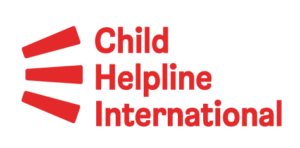Our fifth in-country workshop for child helplines and frontline workers supporting the children and young people who have been displaced from Ukraine took place in Chișinău, Moldova, last week.
According to UNHCR: “Moldova has received 674,057 Ukrainian refugees and 76,752 third-country nationals since late February 2022. Of them, 102,283 have chosen to stay in the country as of 16 January 2023. Out of this 47,784 are under the age of 18 years old.”
Alongside this, UNICEF’s “Situation Analysis of children and adolescents in Moldova” states that it is one of the poorest countries in Europe, and the poverty rate among children was 26% in 2020.
With this in mind, and grasping the importance of coordinating the work of different stakeholders, I was pleased to see representatives of the following organisations and institutions joining the workshop:
All images © Adrian Guțu
On the first day, our Child Protection and Gender-Based Violence Expert, Eva Veldhuizen-Ochodničanová, led sessions focused on trafficking in human beings (THB) and sexual and gender-based violence (SGBV). Participants had a chance to look closer at the red flags of THB and gaps in existing systems to prevent it, as well as discuss in detail different aspects of SGBV.
The second day started with a presentation from our Data, Research and Quality Officer, Magda Zimnowoda (PhD) about Core Quality Standards for our child helpline members in the context of emergencies. It was truly heartwarming to learn how the different organisations are mobilising to address emerging needs and issues, with examples of bnoth the Covid-19 pandemic and the influx of refugees from Ukraine.
After that, we dived into sessions delivered by Professor Kieran McCartan, starting with conflict-related trauma. Participants brainstormed ideas of how they might respond to trauma. They shared examples of how cooperation between organisations often helps to discover and address the root of trauma. Following that, we focused on counsellors’ wellbeing and had an opportunity to share our self-care practices. It was also highlighted by one the participants that there is a need for training for managers and supervisors about collective care, employees’ wellbeing and burnout prevention.
All images © Adrian Guțu
The final day consisted of a panel discussion with representatives from Missing Children Europe (MCE), Kids in Need of Defence (KIND), International Centre for Missing & Exploited Children (ICMEC) as well as Professor Kieran McCartan. I got to hear about the challenges of finding missing children and re-uniting them with their families. I also learnt that there was a 62% rise in children sexual abuse material (CSAM) detected in Moldova between 2020 and 2021, and that although laws are in place, some of the tech companies are unwilling to cooperate and there are no tools to enforce these laws. We also talked about the lack of linked support systems for people turning 18 years old, and the importance of empathy and honesty in addressing conflict-related trauma.
We finished with participants sharing the biggest current and future challenges their organisations are facing and together, we brainstormed possible solutions. Some of the common struggles faced by the participating organisations are:
- Language barrier (lack of Ukrainian speaking counsellors);
- Lack of efficient cooperation and referral systems between the organisations and institutions; and
- Providing long-term, inter-organisational support for ongoing trauma.
My main conclusion after an insightful three days is that the importance of cooperation should not be underestimated. Throughout the whole workshop this is what I heard the most: organisations, institutions, and civil society are all crucial parts of responding to any crisis, but only by working together they can make a real impact. Seeing representatives of different organisations talking to each other during the breaks and brainstorming together during the sessions, I left Moldova with hope that this is the start of beautiful and powerful partnerships.

Kasia Smolinska
Operations Officer

